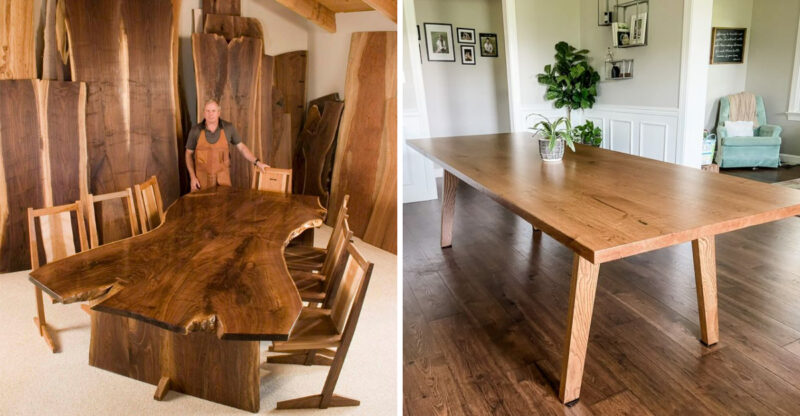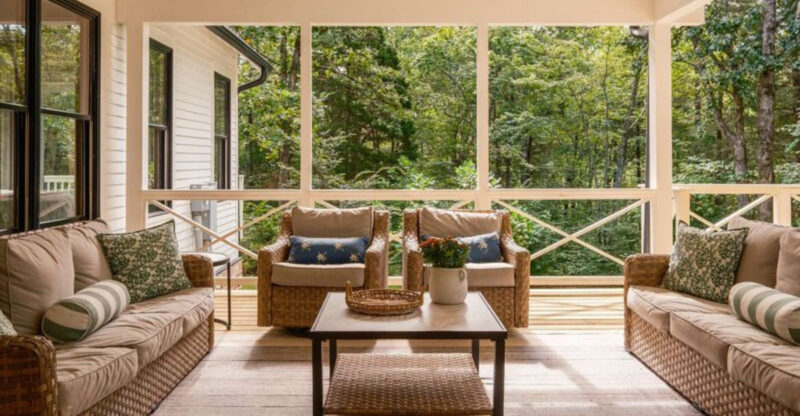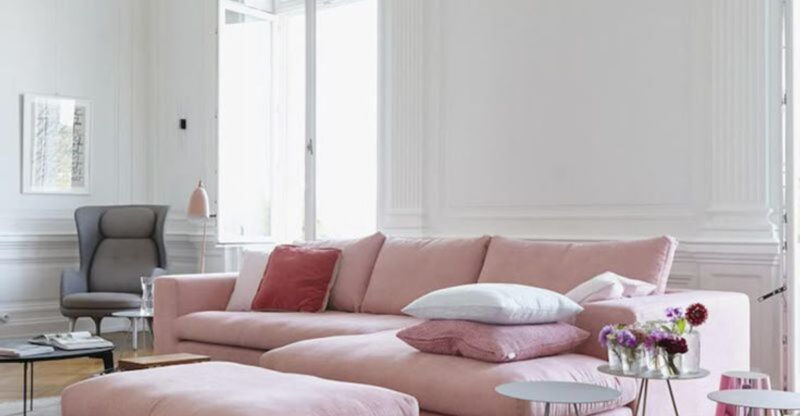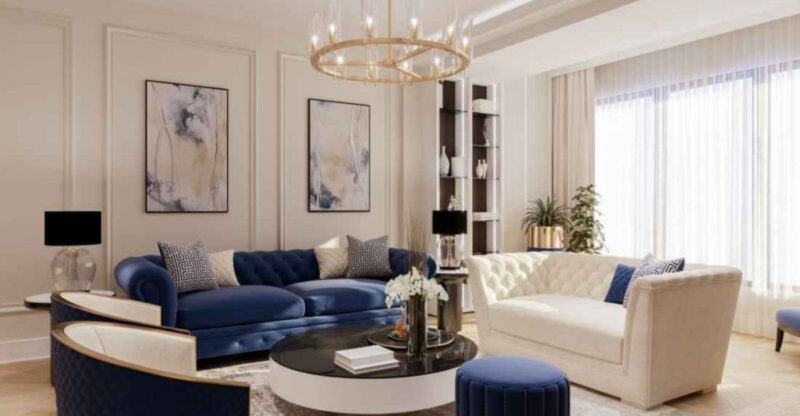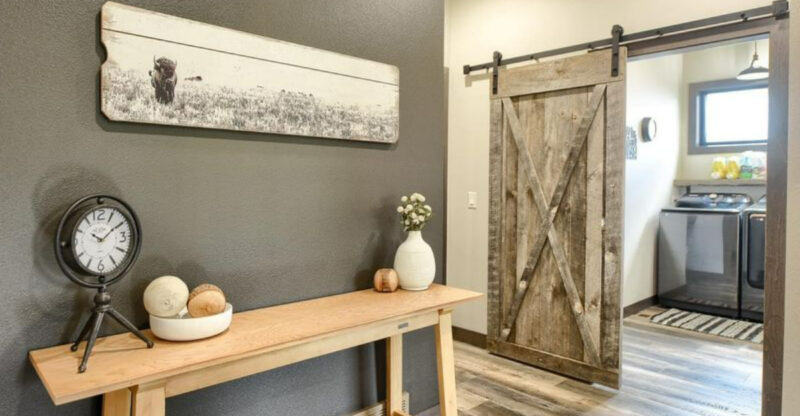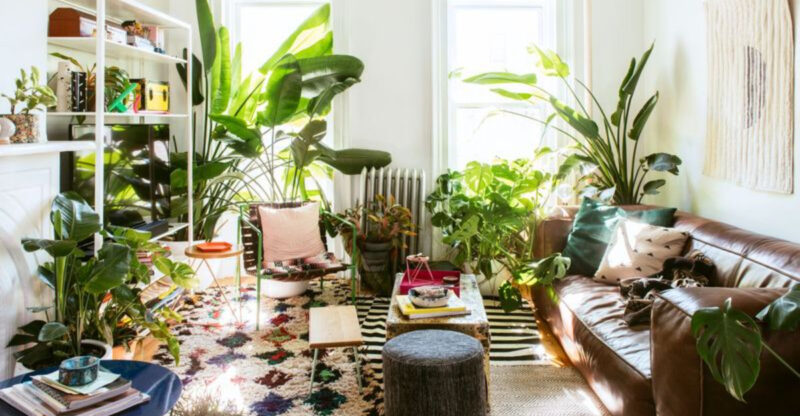The 9 Outdoor Pieces Rhode Island Pros Nix And 8 That Belong On Your Porch
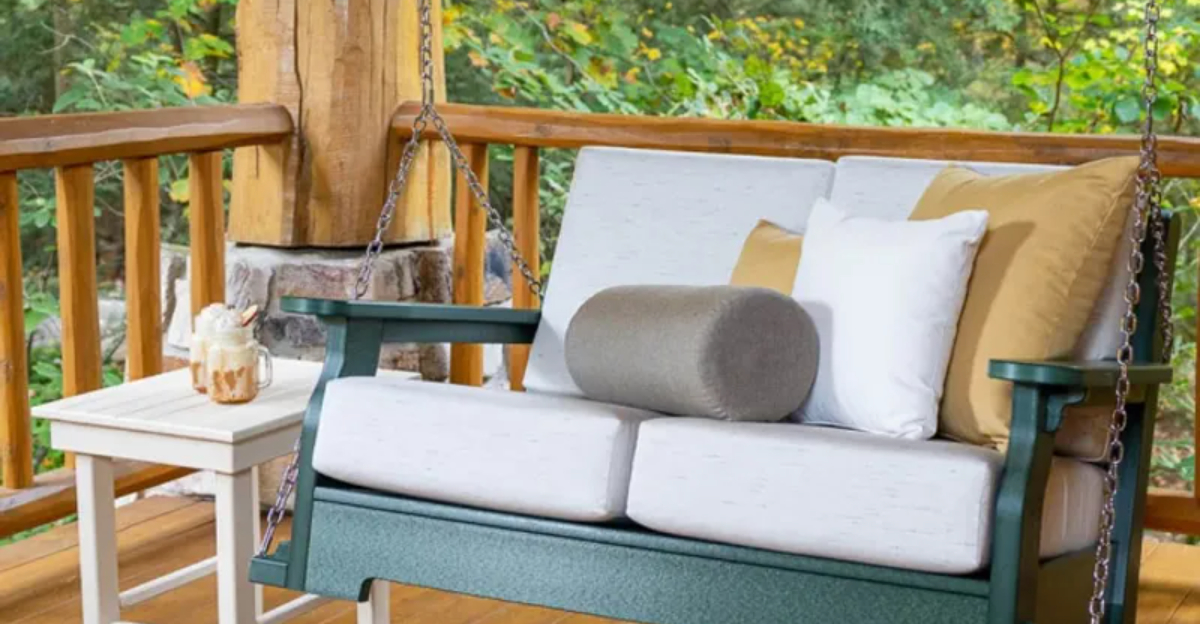
Setting up the perfect Rhode Island porch isn’t just about personal taste – it’s about creating a space that withstands our coastal weather while looking timeless.
As someone who’s worked with local designers for years, I’ve learned which outdoor pieces truly stand the test of time in our unique climate.
Let me share the items seasoned Rhode Island pros consistently recommend avoiding, plus the eight pieces that absolutely deserve a spot on your oceanside or inland porch.
1. Plastic lawn chairs (nix)
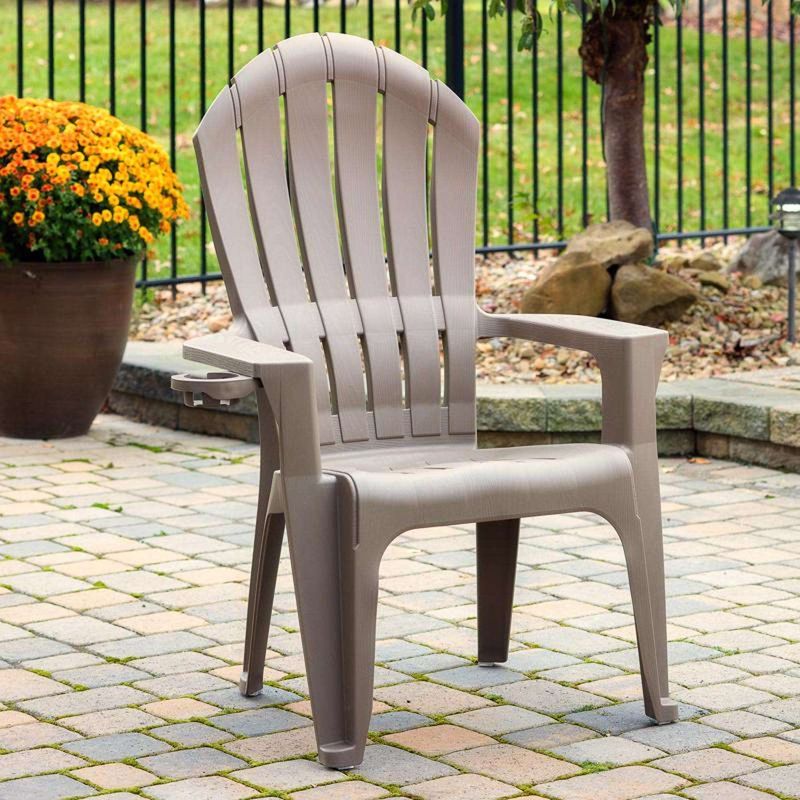
Nothing screams ‘I gave up on style’ like those flimsy plastic chairs that fade after one sunny season. The harsh New England sun quickly turns crisp whites into sad yellows, and blues into washed-out ghosts of their former selves.
When winter arrives, these chairs often crack at the first frost, leaving you with broken pieces by spring. Most local designers cringe at these chairs because they’re simply not built for our coastal climate.
Many homeowners buy them thinking they’re saving money, but replacing them yearly costs more than investing in quality pieces. Plus, they’re an environmental nightmare when they inevitably break and end up in our beautiful Narragansett Bay.
2. Rusty metal benches (nix)
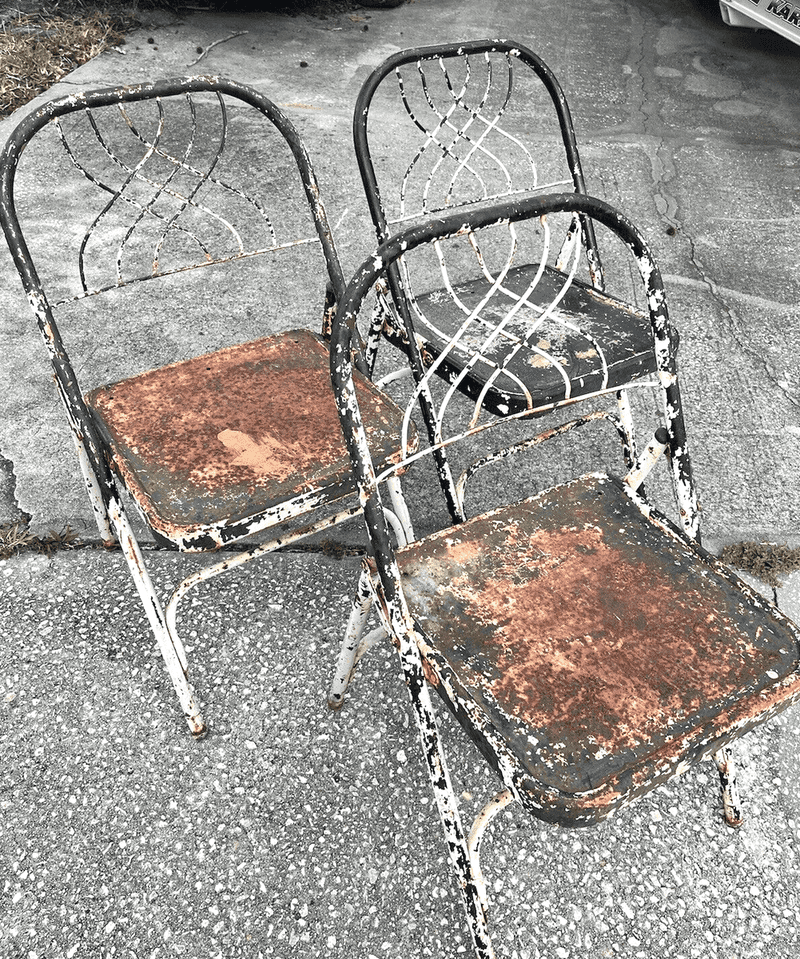
That charming antique metal bench might look perfect in the store, but after one Rhode Island winter, it’ll transform into a tetanus risk. Our salty air is particularly brutal on untreated metal, creating rust spots faster than you can say ‘Narragansett.’
When spring arrives, you’ll find yourself scraping, sanding, and repainting a cycle that never ends. The rust stains left on your porch boards can be nearly impossible to remove, creating permanent orange marks that ruin your curb appeal.
If you’re set on metal furniture, local experts recommend powder-coated aluminum instead. It gives you the metallic look without the maintenance headache that comes with traditional wrought iron or steel pieces.
3. Vinyl outdoor rugs (nix)
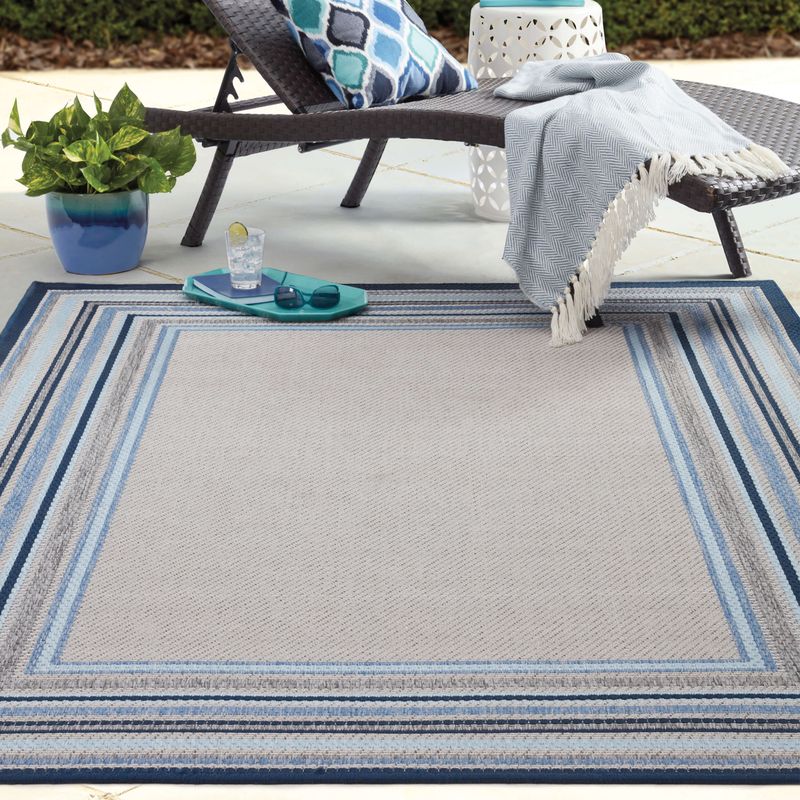
Those budget-friendly vinyl rugs from big box stores might seem practical, but they’re actually porch nightmares in disguise. Water gets trapped underneath, creating the perfect breeding ground for mold and mildew especially in our humid Rhode Island summers.
I’ve seen these rugs literally fuse to wooden decks after a season, requiring scraping tools to remove the melted vinyl. The synthetic materials also heat up dramatically in direct sunlight, making them uncomfortable to walk on barefoot and potentially damaging your decking.
When fall arrives, they become slippery death traps with the first frost. Most local designers avoid these completely, as they simply don’t stand up to our distinct seasonal changes.
4. Cheap resin planters (nix)
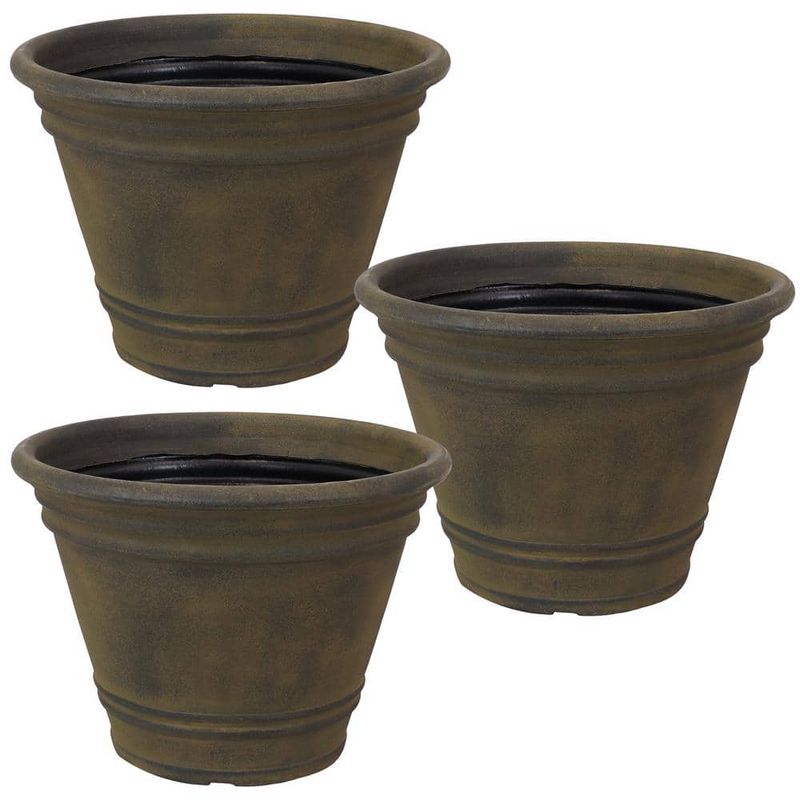
Bargain resin planters might look fine in the store, but they’re absolutely terrible for Rhode Island porches. After just one season, they begin to fade unevenly, developing a chalky film that no amount of cleaning will remove.
When winter hits, these planters often crack from freeze-thaw cycles, leaving you with soil spills and damaged plants. The lightweight nature means they blow over during our famous coastal winds, damaging both your plants and potentially your windows or other porch items.
Most concerning is how quickly they degrade in UV light, leaching microplastics into your soil and potentially into the groundwater. Rhode Island landscapers consistently warn against these environmental hazards disguised as budget-friendly options.
5. Faded patio umbrellas (nix)
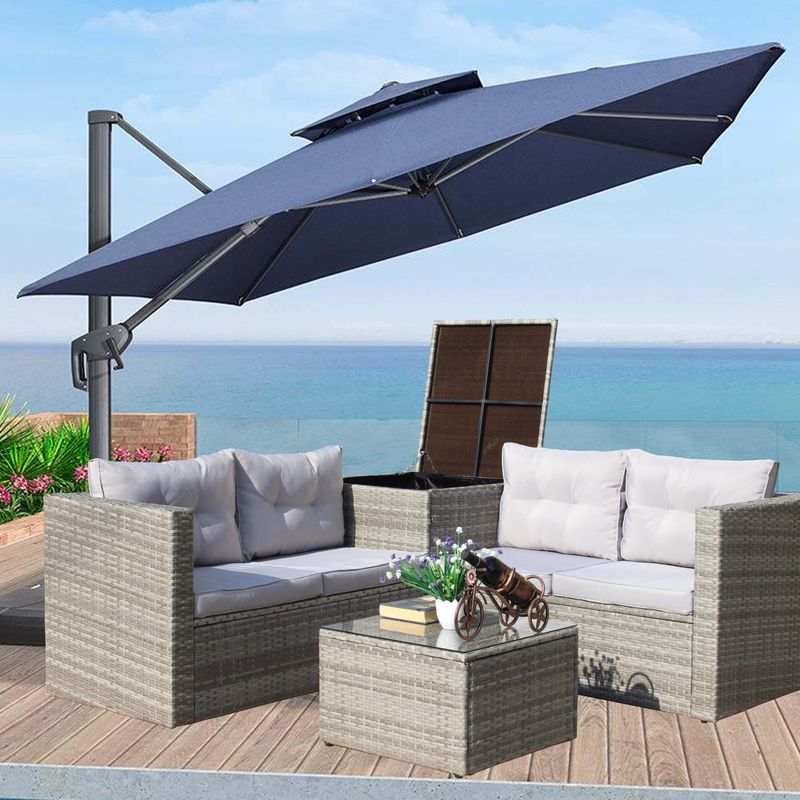
When I visit homes around Newport and Providence, faded patio umbrellas are instant red flags for property neglect. Our intense coastal sunshine bleaches fabric quickly, turning vibrant colors into washed-out eyesores within a single season.
Beyond the aesthetic issues, faded umbrellas indicate UV damage that compromises the fabric’s integrity. This means tears and rips are imminent, especially during those unexpected summer thunderstorms that roll through the bay.
The metal components suffer too salt air corrodes the mechanisms until they no longer open smoothly. Local designers recommend replacing faded umbrellas immediately rather than keeping them as sad reminders of summers past. If you must keep an umbrella, invest in marine-grade fabric designed specifically for coastal environments.
6. Plastic wicker furniture (nix)
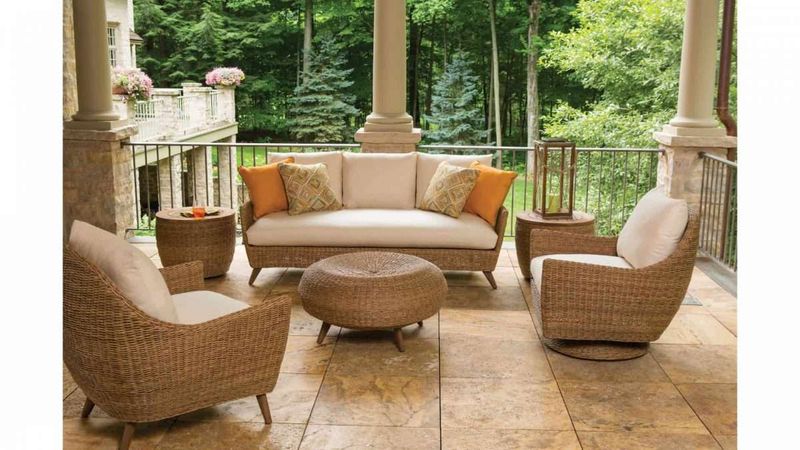
Fake wicker furniture might seem like a practical solution for our variable climate, but Rhode Island designers frequently advise against it. The plastic strands become brittle after exposure to our coastal sun, leading to breakage that creates sharp edges and unsightly gaps.
During winter storage, these pieces often warp and lose their shape, never quite sitting right again. The worst offenders are the cheaper varieties that fade unevenly, developing strange blotchy patterns that scream ‘budget furniture.’
If you’re determined to have the wicker look, local experts recommend spending more on high-density polyethylene versions specifically rated for marine environments. These can handle the salt spray and intense UV exposure without degrading like their cheaper counterparts that end up in landfills after just a few seasons.
7. Overly bright string lights (nix)
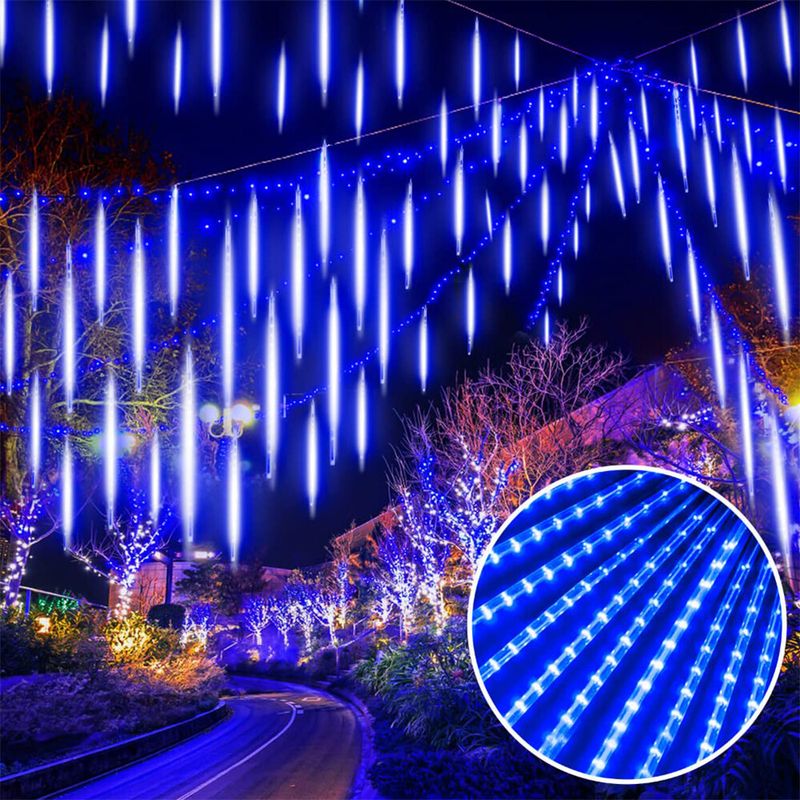
Those ultra-bright LED string lights might look festive initially, but they’re considered a major faux pas among Rhode Island’s coastal communities. The harsh glare creates light pollution that disrupts the natural beauty of our starry nights and can even interfere with local wildlife patterns.
Many homeowners’ associations in places like Watch Hill and Little Compton have actually banned these overpowering lights. Beyond the environmental concerns, they create an uncomfortable atmosphere for conversation and relaxation more reminiscent of a commercial space than a cozy porch.
The plastic coating deteriorates quickly in our salty air, presenting both an eyesore and potential electrical hazard. If you want evening illumination, designers suggest subtle downlighting or warm-toned lanterns that complement rather than compete with our gorgeous natural surroundings.
8. Mildew-covered cushions (nix)
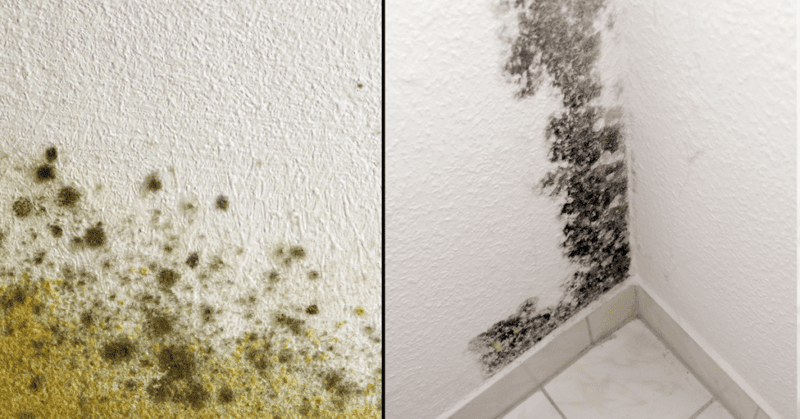
Nothing says ‘neglected home’ faster than cushions sporting those telltale black mildew spots. Our humid Rhode Island climate creates perfect conditions for mold growth, especially on porch cushions left out during damp evenings.
Beyond being visually unappealing, these cushions harbor allergens that can trigger respiratory issues for your family and guests. The spores spread easily to other porch items, creating a maintenance nightmare that extends beyond just the cushions themselves.
Most concerning is how quickly the mildew penetrates beyond the fabric surface, making complete cleaning nearly impossible. Local designers recommend investing in marine-grade cushions with antimicrobial treatments specifically designed for coastal environments. Always store cushions in waterproof containers during extended rainy periods or when your porch won’t be used for several days.
9. Decorative wind spinners (nix)
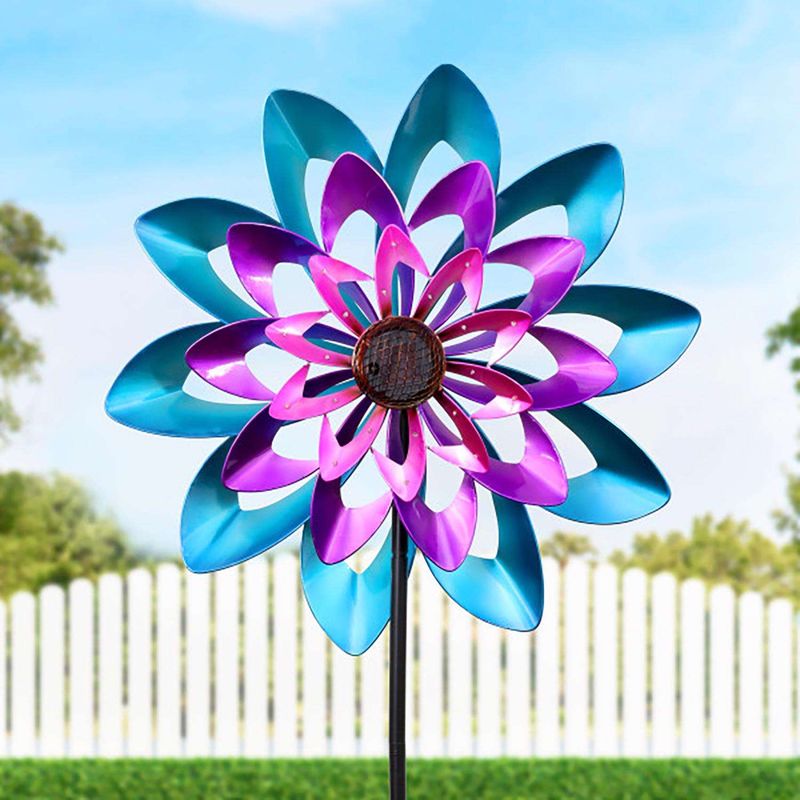
Those colorful metal wind spinners might seem charming in the garden center, but they quickly become neighborhood nuisances in our breezy coastal state. The constant squeaking drives neighbors crazy, especially during those windy Rhode Island nights when everyone’s windows are open.
After just one season, the paint chips and flakes, leaving behind rusty metal that stains your porch floor. Many spinners become projectiles during our famous nor’easters, causing property damage or even injuring passersby.
Local landscape architects point out that these spinners often clash with the historic aesthetic of many Rhode Island communities. Instead of these mass-produced decorations, consider items that honor our maritime heritage a simple ship’s bell or authentic nautical rope details provide character without the maintenance issues or noise pollution.
10. Teak rocking chairs (belong)
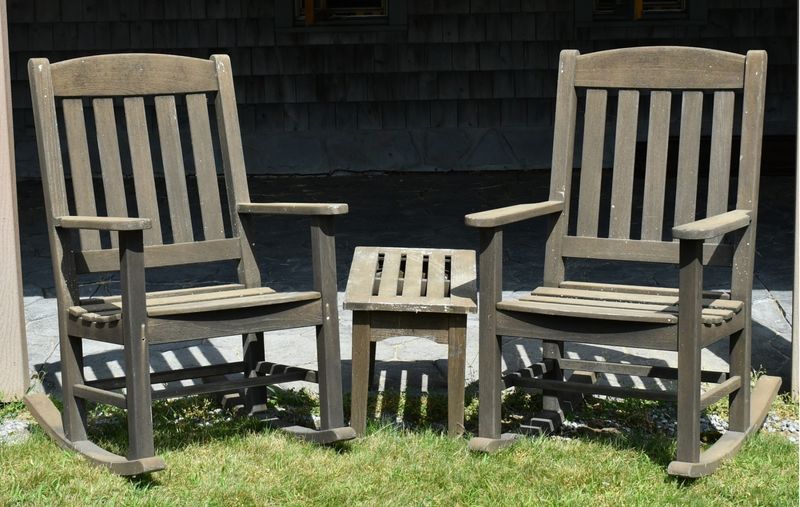
Teak rocking chairs earn their place on Rhode Island porches through remarkable resilience against our coastal elements. The natural oils in this hardwood prevent rot even when exposed to salt spray and high humidity that would destroy lesser woods.
Over time, these chairs develop a distinguished silver patina that actually enhances their appeal a living testament to coastal living that synthetic materials can never replicate. The gentle rocking motion perfectly complements watching sailboats drift across Narragansett Bay or observing summer thunderstorms roll in from the comfort of your porch.
While the initial investment might cause sticker shock, most local homeowners report their teak rockers lasting decades with minimal maintenance. For authentic Rhode Island style, look for designs with nautical-inspired curved arms reminiscent of the boats that have shaped our state’s history.
11. Wrought iron bistro set (belong)
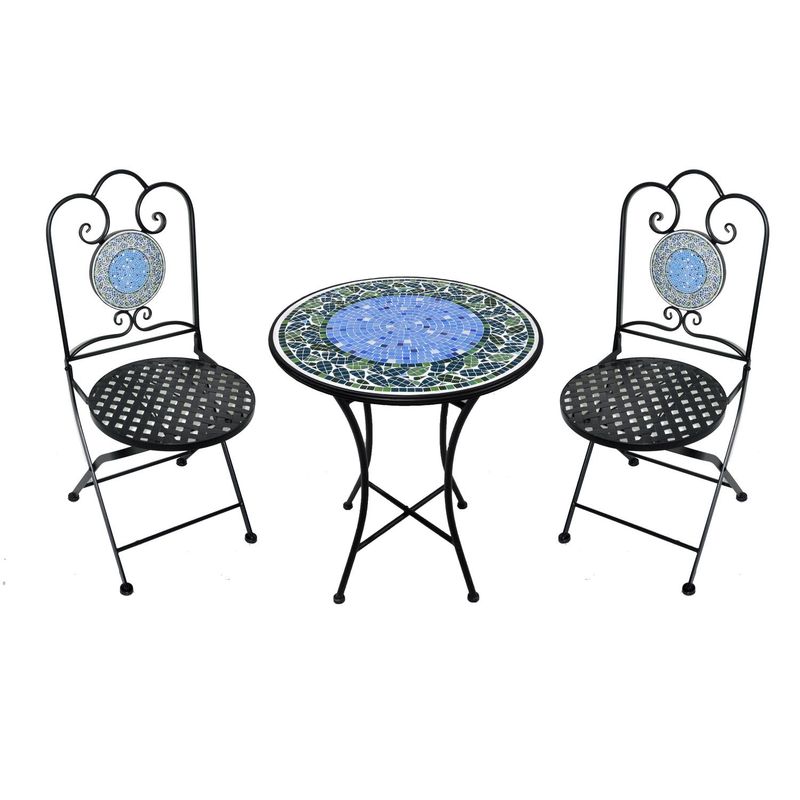
Properly finished wrought iron bistro sets have graced Newport’s finest porches for generations, and for good reason. Unlike their cheaper counterparts, quality sets feature marine-grade powder coating that resists our salty coastal air while maintaining their elegant appearance.
The substantial weight prevents these pieces from becoming dangerous projectiles during our famous coastal wind gusts. I particularly appreciate how the dark frames dramatically showcase vibrant cushions while complementing the traditional architecture found throughout Providence, Bristol, and Jamestown.
Local designers often recommend bistro sets for smaller porches where space is at a premium. The compact footprint provides comfortable seating without overwhelming the area. For authentic Rhode Island style, look for designs featuring nautical motifs like rope details or anchor patterns that honor our maritime heritage.
12. Hanging fern baskets (belong)
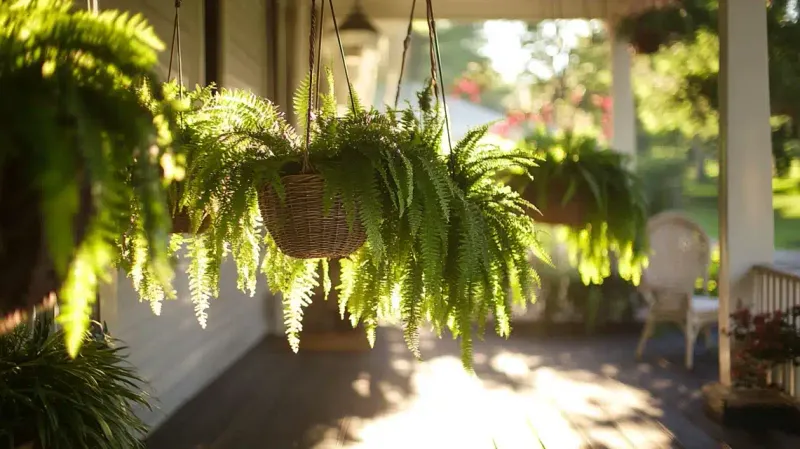
Boston ferns in hanging baskets have adorned Rhode Island porches since the Victorian era, creating a timeless look that never goes out of style. Their feathery fronds soften the hard architectural lines of traditional New England homes while providing natural cooling through transpiration during our humid summers.
Unlike flowering baskets that require constant deadheading, these hardy ferns thrive in our coastal climate with minimal maintenance. The gentle movement of the fronds in ocean breezes adds a soothing kinetic element to porch settings from Watch Hill to Little Compton.
For authentic Rhode Island style, designers recommend displaying them in natural fiber or aged copper hanging baskets rather than plastic. Position them where they’ll receive filtered morning light but protection from harsh afternoon sun exactly the conditions they enjoy in their natural woodland habitats.
13. Outdoor lanterns (belong)
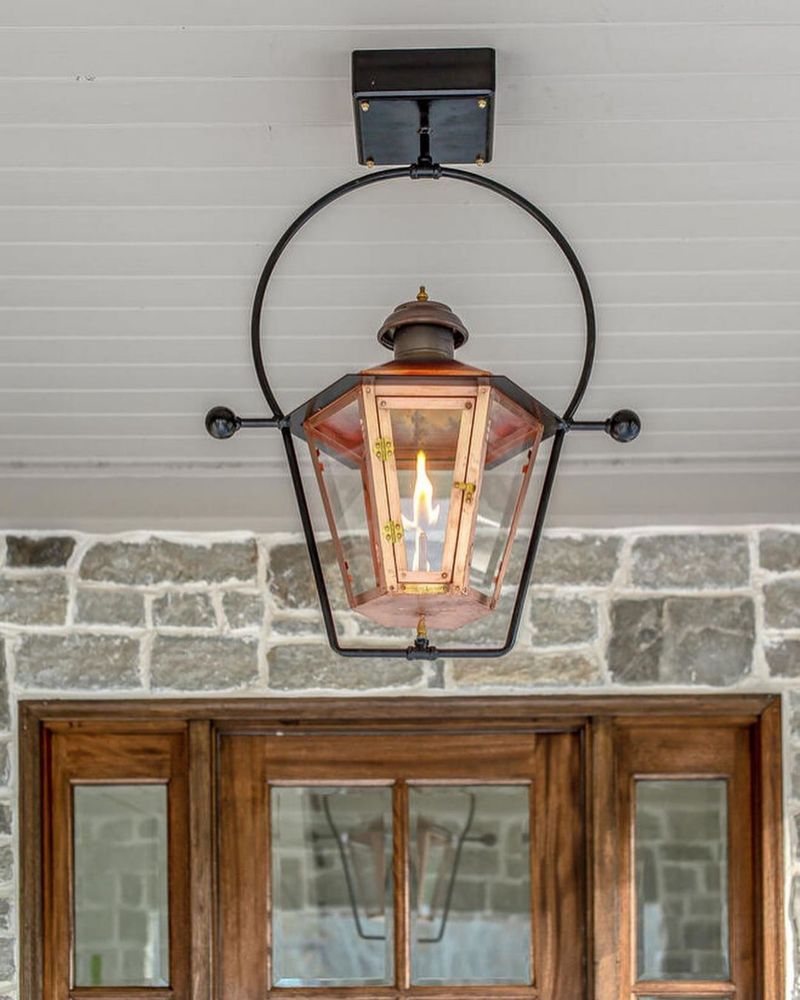
Copper or brass lanterns develop a gorgeous patina in our coastal air that perfectly complements traditional Rhode Island architecture. Unlike harsh string lights, these fixtures cast a warm, inviting glow that enhances evening conversations without creating light pollution that would obscure our magnificent starry skies.
Weather-resistant models withstand our famous nor’easters while providing reliable illumination during power outages a practical consideration given our occasional coastal storms. I’ve noticed how the flickering light creates a cozy atmosphere that encourages neighbors to linger longer during porch gatherings.
For authentic local style, look for designs inspired by historic ship lanterns once used throughout Narragansett Bay. Position them strategically to illuminate steps and transitions for safety while creating pools of light that define different areas of larger porches.
14. Cedar porch swing (belong)
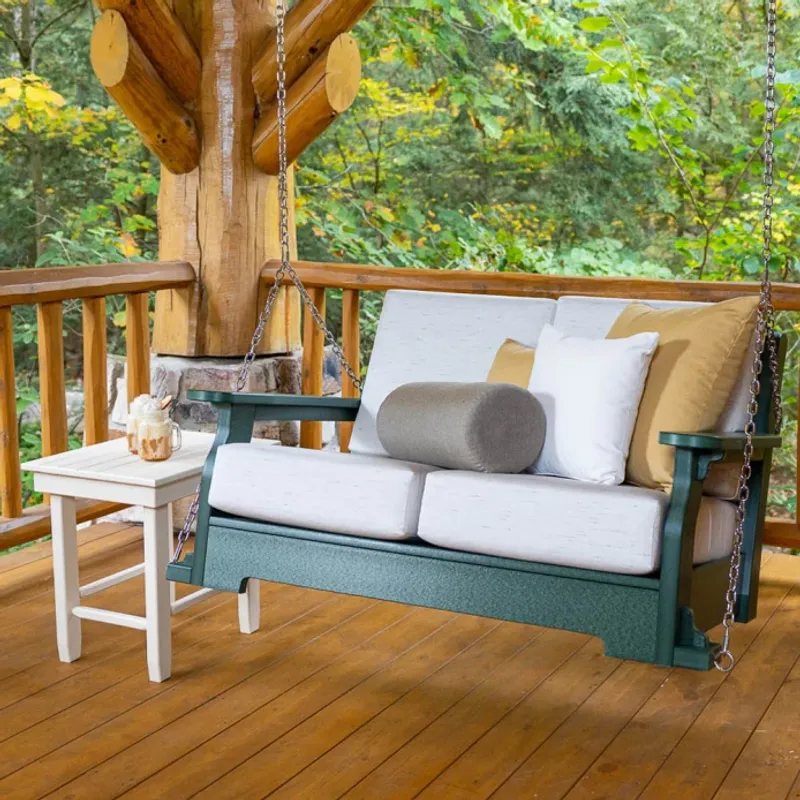
Cedar porch swings earn their place on Rhode Island porches through remarkable resilience against our harsh coastal conditions. The natural oils in this aromatic wood repel insects while resisting rot, even when exposed to salt spray and high humidity that would quickly destroy lesser materials.
The gentle swinging motion perfectly complements watching sailboats drift across the bay or observing summer thunderstorms roll in from the comfort of your covered porch. Most local homeowners report their cedar swings developing a distinguished silver-gray patina over time that actually enhances their coastal charm.
For authentic Rhode Island style, local craftsmen often incorporate nautical details like rope accents or curved armrests reminiscent of historic ships. Position your swing to maximize both comfort and your specific view – whether that’s the Atlantic Ocean, Narragansett Bay, or a charming neighborhood street.
15. Cozy outdoor rugs (belong)
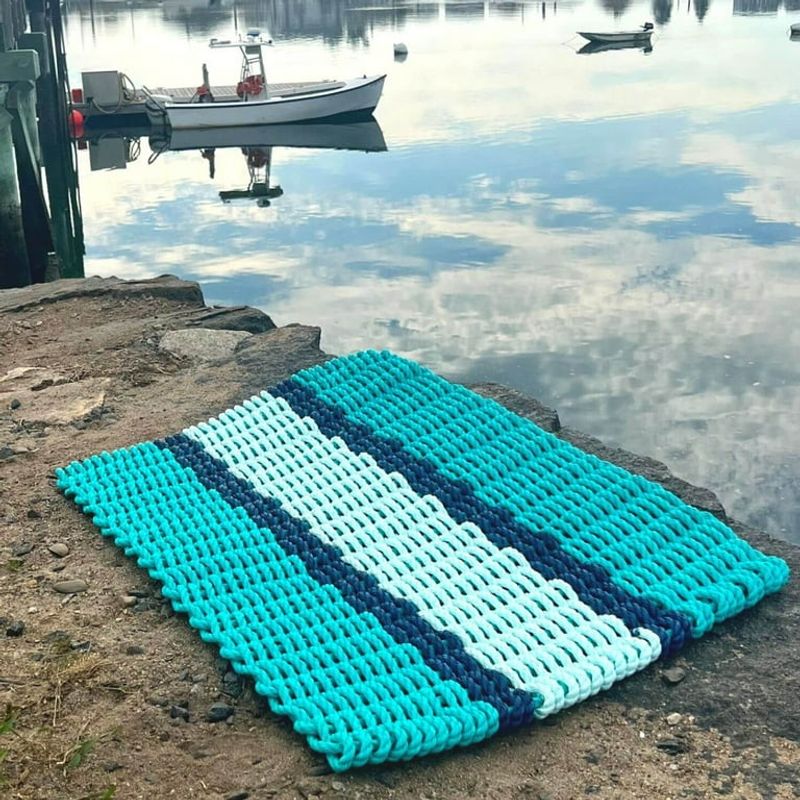
Marine-grade outdoor rugs crafted from recycled materials have revolutionized Rhode Island porch design in recent years. Unlike their vinyl counterparts, these specialized rugs allow water to flow through rather than trapping moisture that leads to mold and mildew in our humid climate.
The fade-resistant fibers maintain their vibrant colors despite intense UV exposure from our coastal sunshine. I particularly appreciate how these rugs define seating areas while adding visual warmth to wooden porches throughout all four of our distinct seasons.
For authentic local style, designers recommend nautical stripes in navy and white or patterns inspired by coastal elements like waves and shells. Always select rugs specifically labeled for full outdoor exposure – indoor/outdoor rugs often can’t handle the extreme conditions of a Rhode Island porch exposed to salt spray and winter freezes.
16. Rattan side tables (belong)
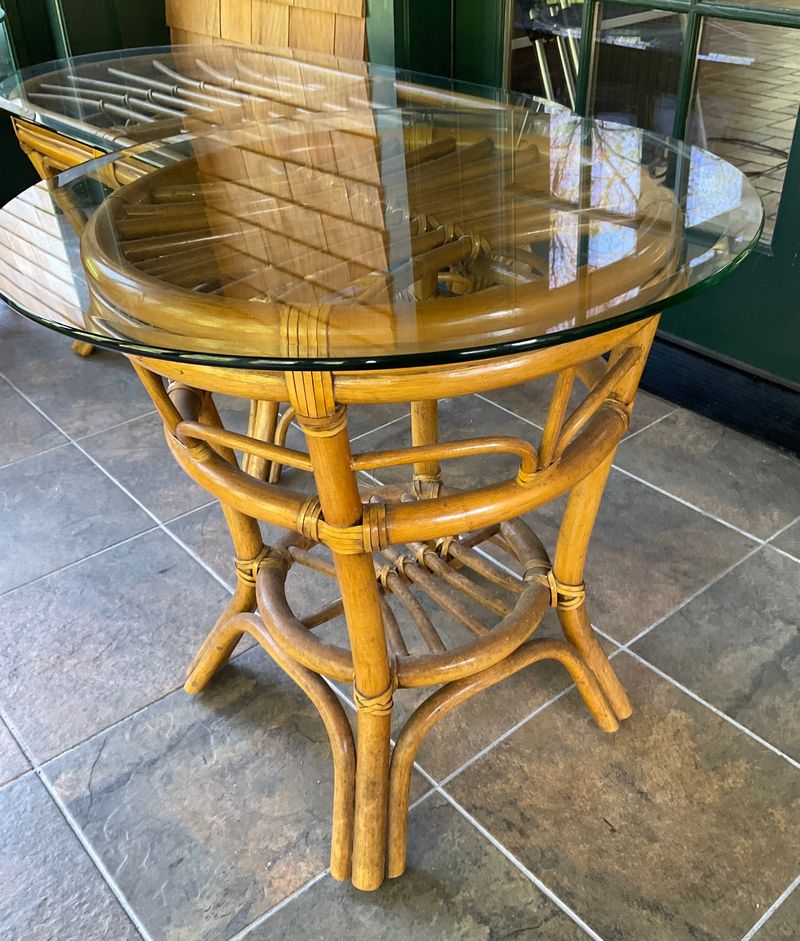
Genuine rattan side tables have graced the finest Newport porches for generations, bringing natural texture that complements our coastal environment. Unlike synthetic versions, authentic rattan develops character over time while maintaining structural integrity when properly protected from direct moisture.
The lightweight nature makes these tables easy to reposition as needed for different gatherings or activities. Local designers often recommend pieces with glass tops that provide practical surfaces for drinks while showcasing the intricate weaving patterns beneath.
For authentic Rhode Island style, look for natural honey tones rather than painted finishes, which weather more gracefully in our marine environment. Position these tables within arm’s reach of seating areas to create functional conversation zones. During winter months, store rattan furniture in a dry location to extend its lifespan.
17. Plush weatherproof pillows (belong)
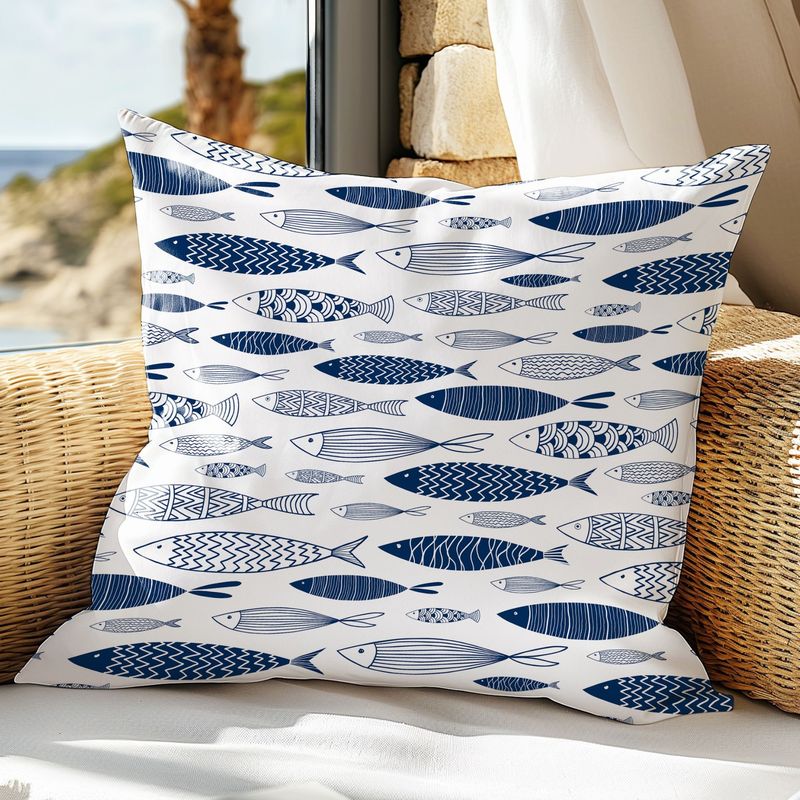
Marine-grade pillows made with solution-dyed acrylic fabrics have transformed Rhode Island porch comfort in recent years. Unlike standard outdoor pillows, these specialized versions resist fading despite our intense coastal sunshine that would quickly bleach lesser materials.
The quick-drying foam inserts prevent the mildew growth so common in our humid environment. When unexpected summer showers arrive, these pillows dry rapidly instead of remaining damp for days like their cheaper counterparts.
For authentic local style, designers recommend nautical blues and crisp whites that reflect our maritime heritage, often incorporating subtle patterns like anchors or rope designs. The substantial investment in quality pillows pays dividends through multiple seasons of use, eliminating the false economy of replacing cheaper versions annually after they’ve been damaged by our challenging coastal conditions.

